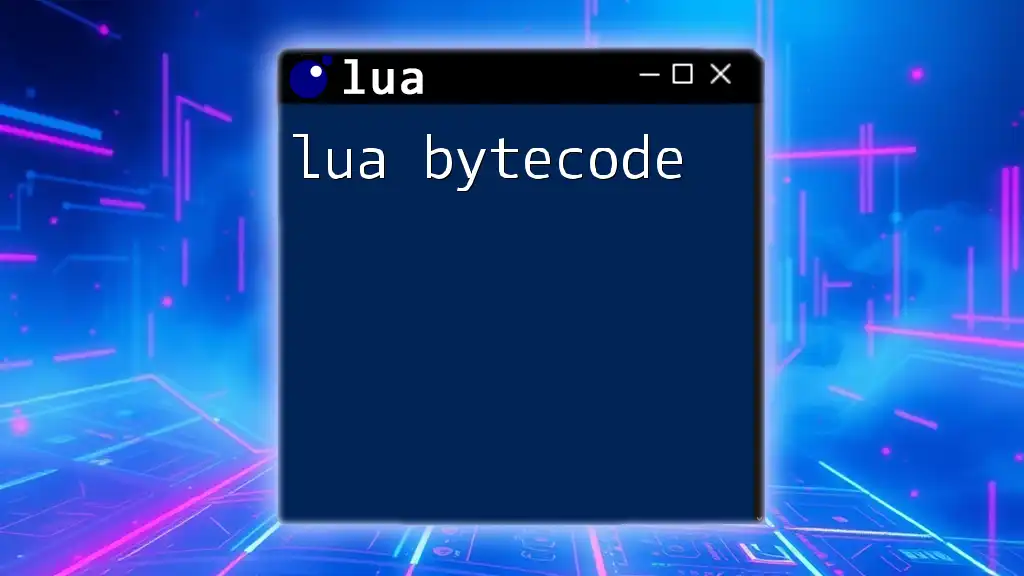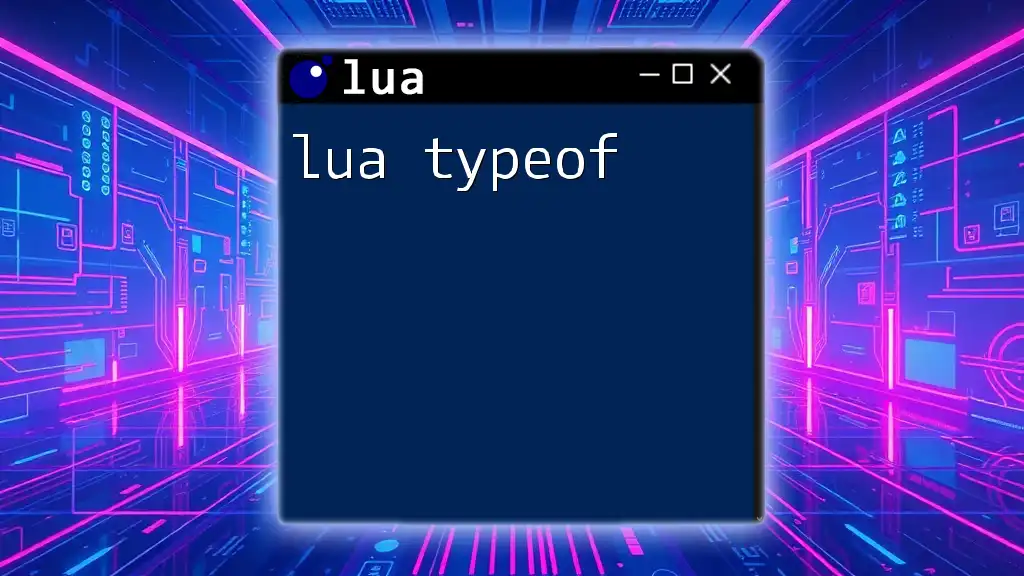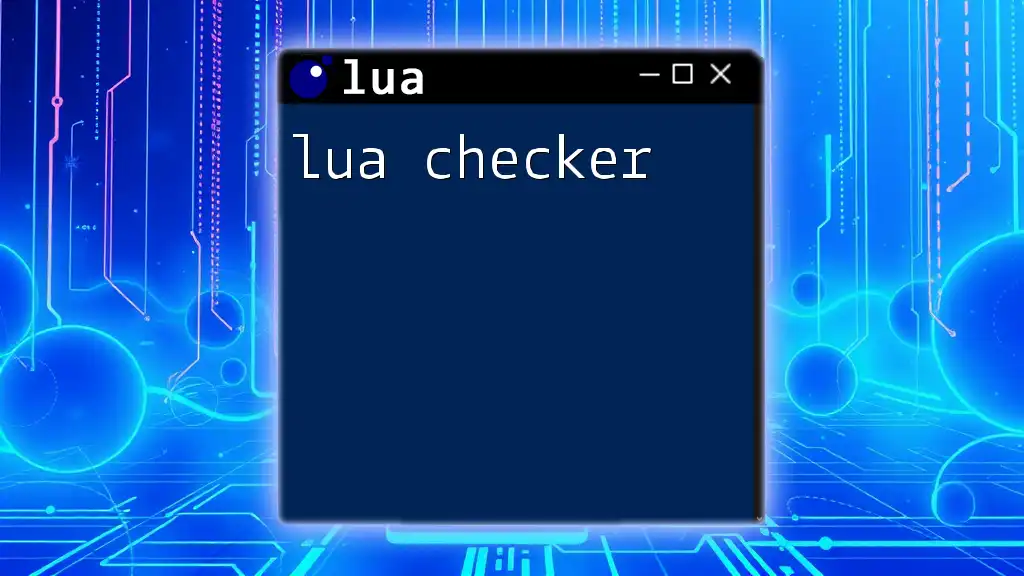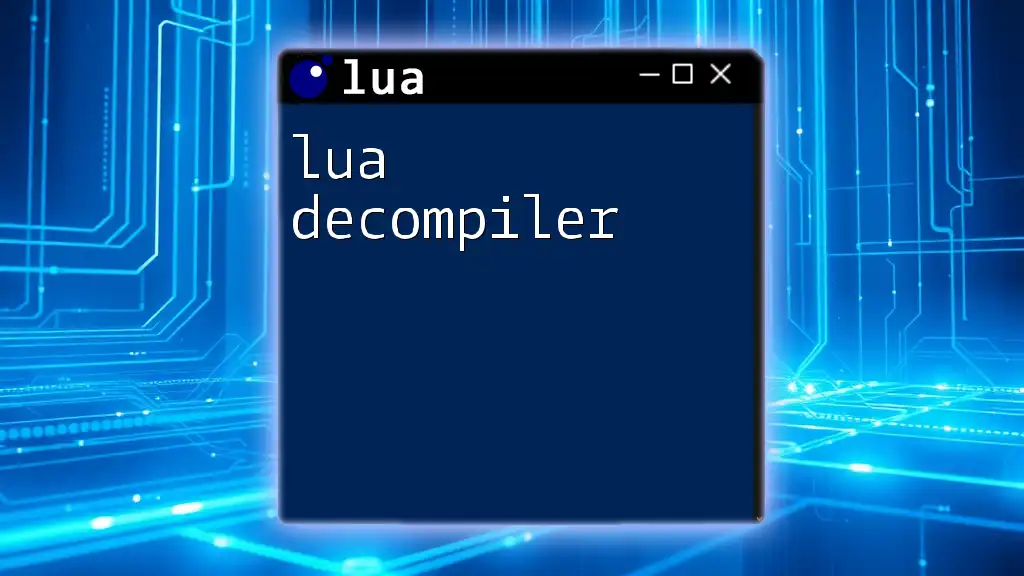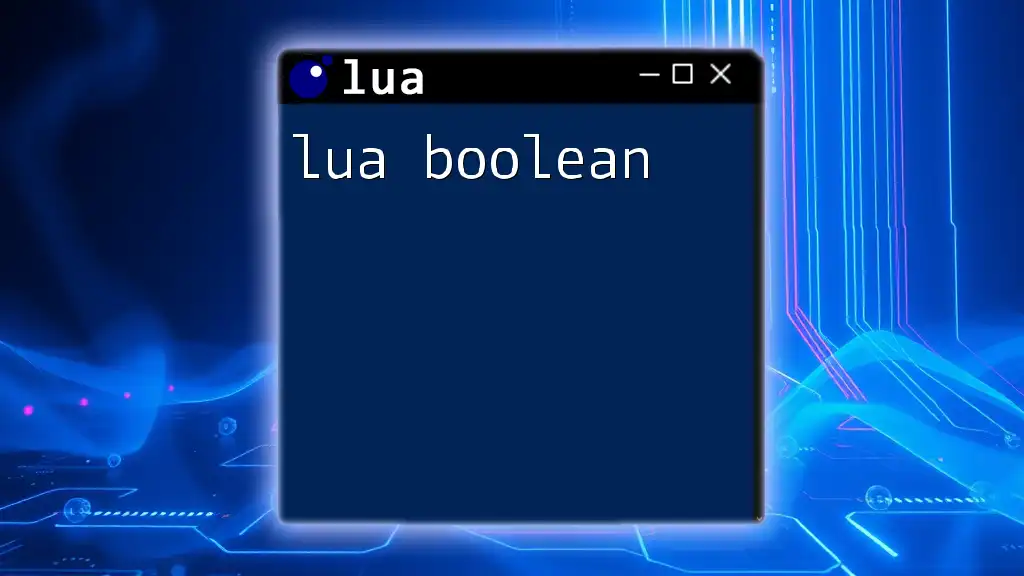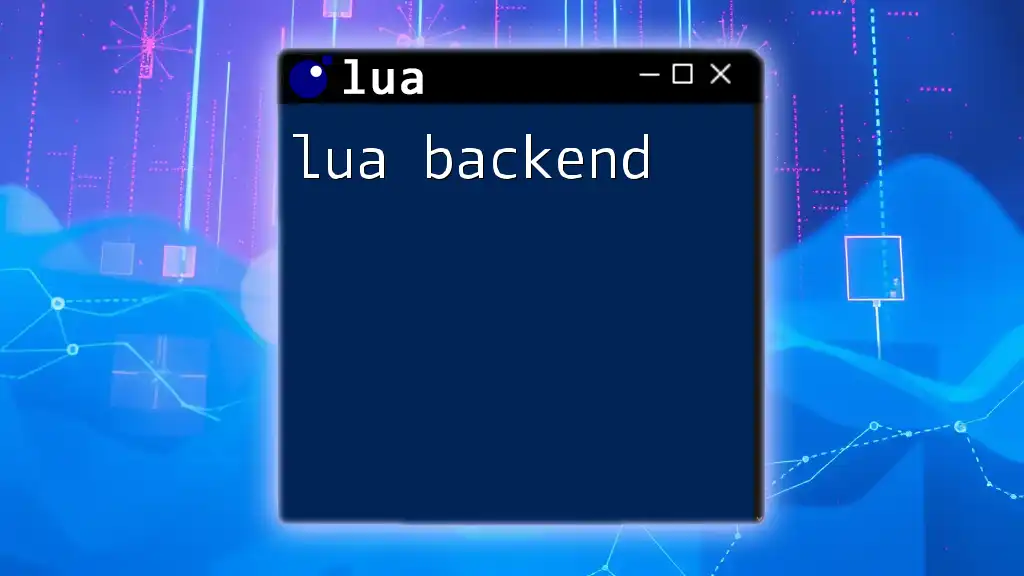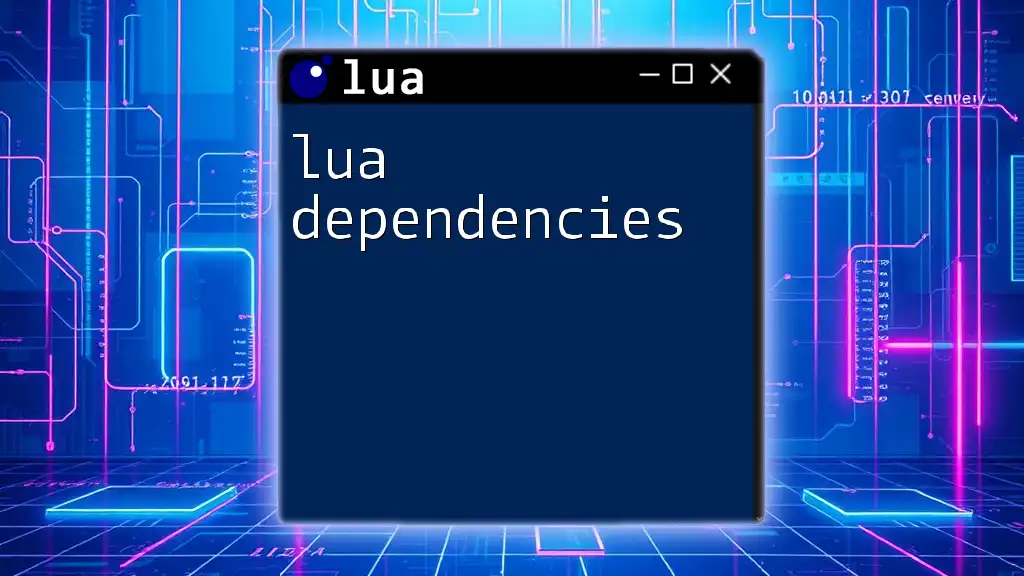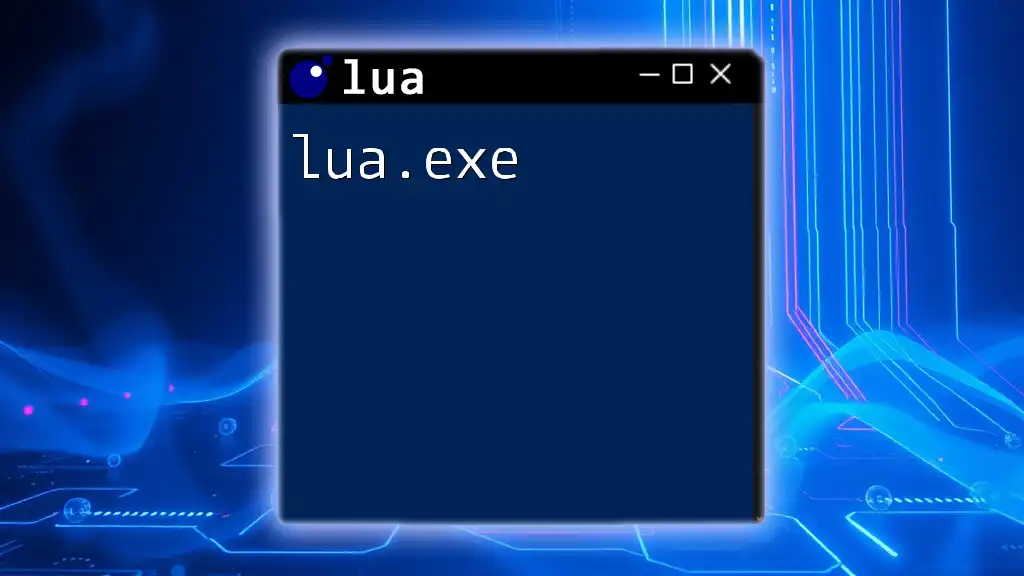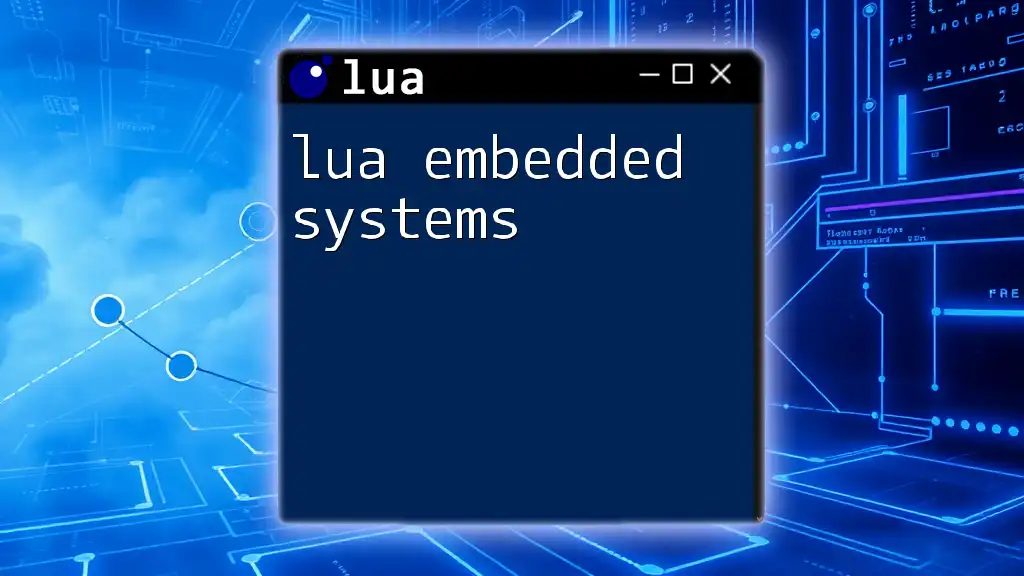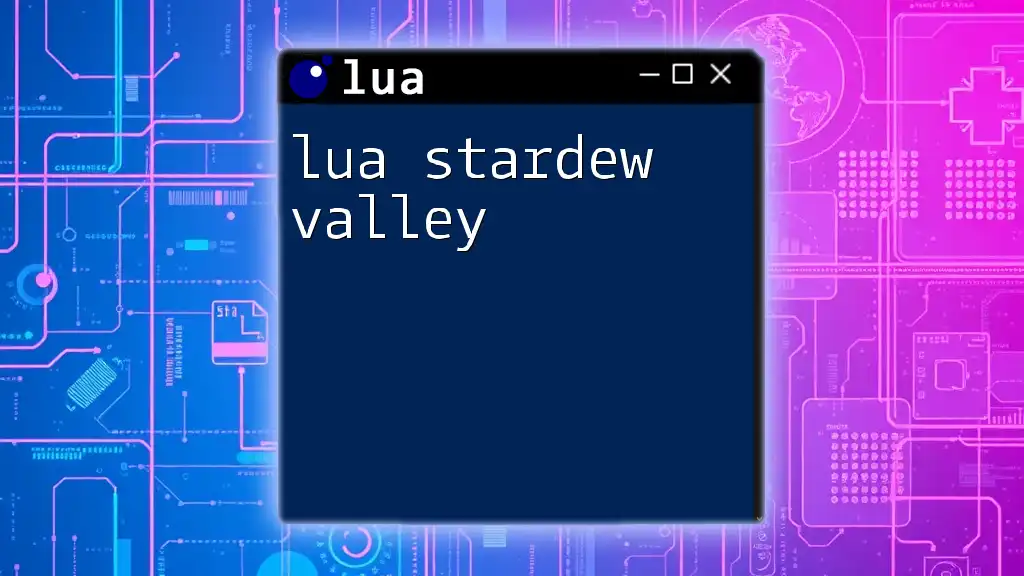Lua bytecode is a low-level, platform-independent representation of Lua scripts that can be executed by the Lua virtual machine for enhanced performance and security.
Here’s a simple example of how to compile a Lua script into bytecode:
-- Sample.lua
print("Hello, World!")
To compile this script into bytecode, you can use the following command in your terminal:
luac Sample.lua -o Sample.luac
This will generate a bytecode file named `Sample.luac`, which can be executed with `lua Sample.luac`.
Understanding Lua Bytecode
Lua bytecode is a compiled version of Lua scripts that provides several advantages during the execution of code. It is a form of intermediate code that the Lua virtual machine can execute directly, making it an essential tool for developers wanting to enhance the performance of their Lua applications.
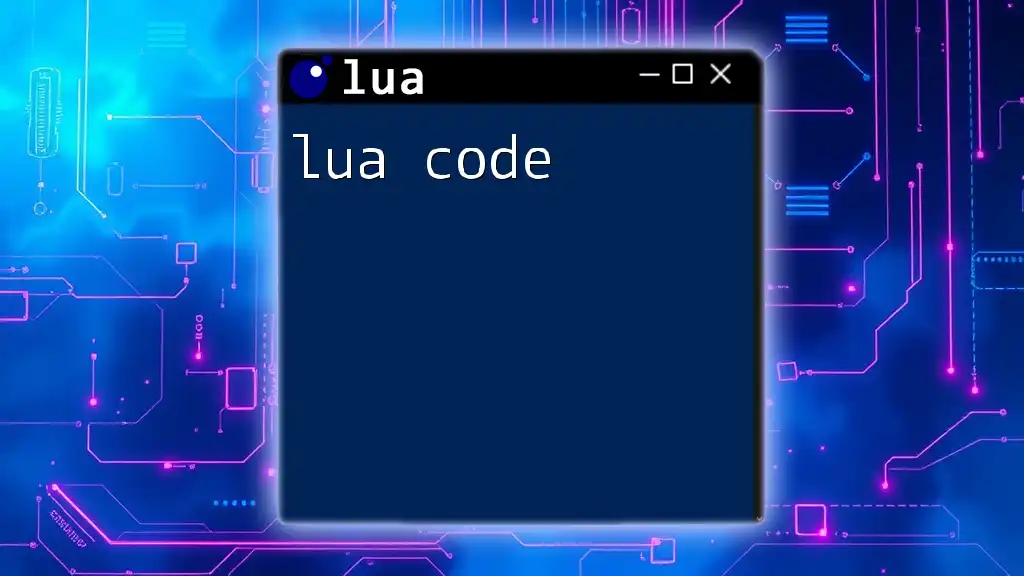
How Lua Generates Bytecode
Lua Interpreter Overview
The Lua interpreter is responsible for executing Lua scripts and converting them into a format that the machine can understand. When you write a Lua script, the interpreter processes this code and transforms it into bytecode during runtime.
Compilation Process
When a Lua script is executed, the compilation process begins. The following key steps occur during this phase:
- Parsing: The Lua code is first parsed into an abstract syntax tree (AST).
- Bytecode Generation: The AST is then converted into Lua bytecode; this is done by the compiler built into the Lua interpreter.
- Execution: Finally, the bytecode is fed into the Lua virtual machine, where it is executed.
Example: Simple Lua Script Compilation
Consider the following Lua script that prints "Hello, Lua!" to the console.
print("Hello, Lua!")
When this script is run, it is compiled into bytecode by the Lua interpreter before it executes.
Code Snippet: Simple Lua Script to Bytecode
The command to see the bytecode produced by your Lua script can be done using the `luac` compiler:
luac -l script.lua
This command lists the compiled bytecode, illustrating the internal representation of your original Lua script.
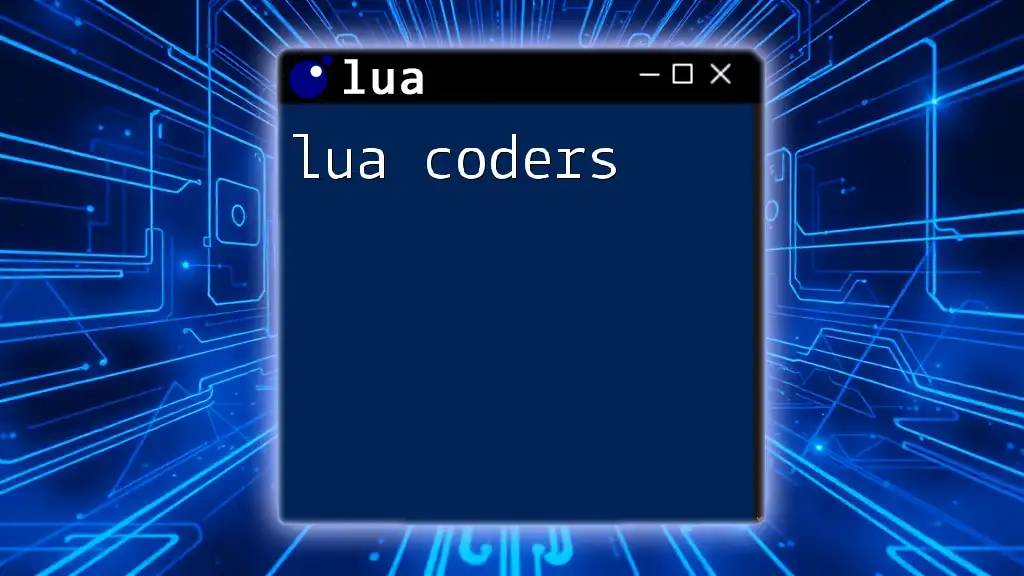
Structure of Lua Bytecode
What is Bytecode?
Lua bytecode is a set of low-level instructions that represent the high-level operations defined in your Lua script. Each bytecode instruction corresponds to a specific operation (e.g., arithmetic operation, data manipulation, etc.) that can be executed by the Lua virtual machine.
Bytecode Instructions
The Lua bytecode format consists of various instructions. Understanding these instructions is crucial for developers who want to utilize Lua bytecode effectively. Some common bytecode instructions include:
- LOADK: This instruction is used to load a constant onto the stack.
- CALL: This instruction is used to call a function.
Code Snippet: Some Bytecode Instructions
Here’s an example that shows what some of these instructions might look like in bytecode:
-- Example of Load and Call instructions
LOADK 0 -1
CALL 0 1
This snippet indicates that the first constant from the loaded constants is being loaded onto the stack and then a function call is made.
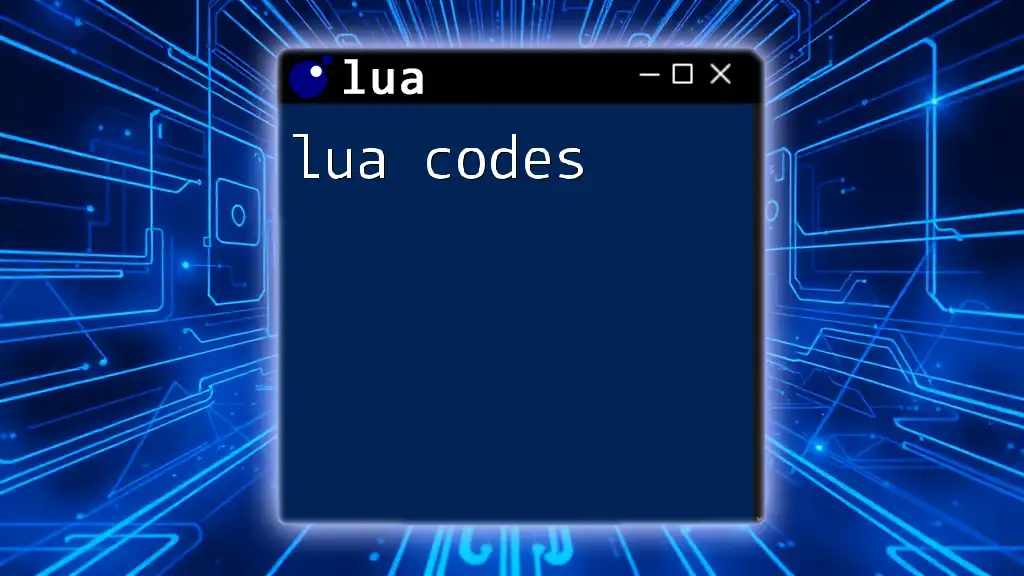
Advantages of Using Bytecode
Performance Improvements
One significant advantage of Lua bytecode is that it offers improved performance. Since bytecode is precompiled, it requires less interpretation time during execution. This difference is crucial for applications that require speed and efficiency, as time-consuming script interpretation can slow down execution.
Portability
Lua bytecode can be run on any platform that has a compatible Lua virtual machine, making it highly portable. This means that developers can share their bytecode across different systems without having to worry about the underlying architecture or Lua version disparities.
Security Aspects
By distributing bytecode instead of source code, developers add a layer of obfuscation to their applications. This reduces the risk of unauthorized access and modifications to the original code, making it a valuable option for protecting intellectual property.
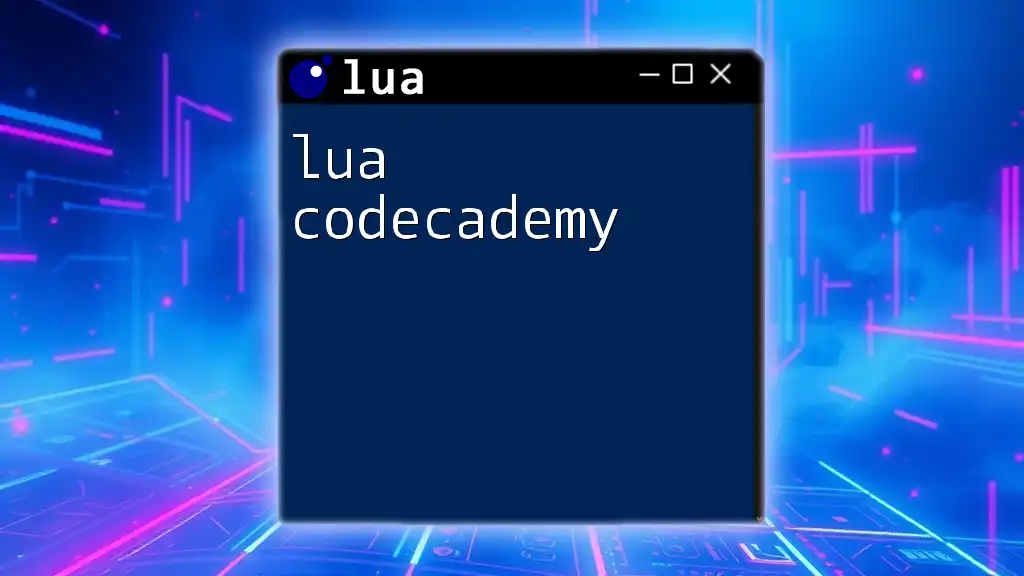
Disadvantages of Using Bytecode
Readability Issues
One of the primary drawbacks of using Lua bytecode is that it is not human-readable. Once code is compiled into bytecode, it loses the clarity and context of the original source code. This can pose issues for maintenance and readability, especially for complex applications.
Debugging Challenges
Debugging bytecode can be notably more difficult compared to debugging the original Lua source code. If an error occurs, the bytecode does not provide the same context as the source code, making it challenging to identify and fix problems.
Portability Issues
While bytecode is portable, it may encounter compatibility issues with different versions of Lua. Bytecode generated from an older version may not run on a newer version without modification, which could lead to runtime errors.
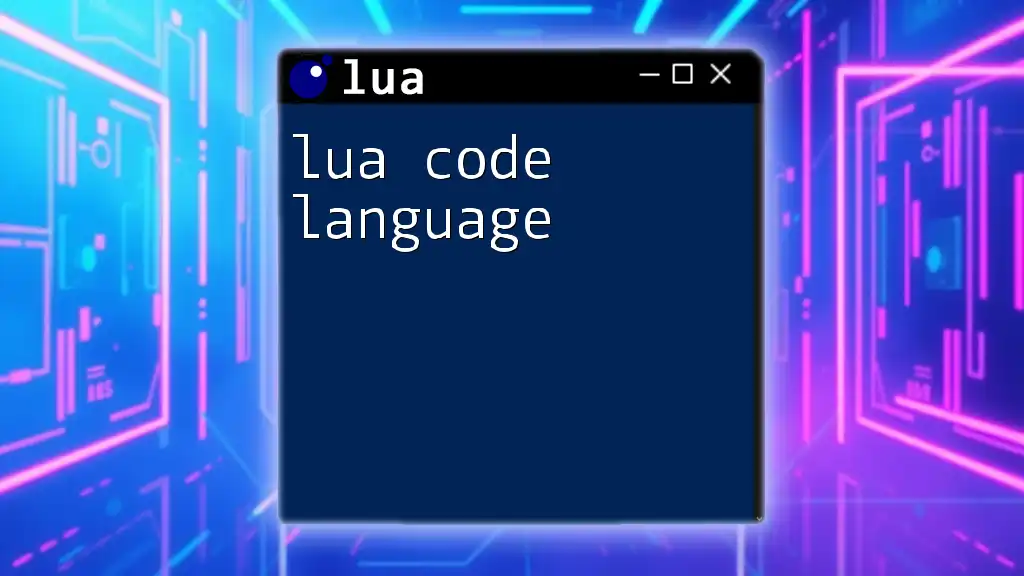
How to Use Lua Bytecode
Compiling Lua Scripts to Bytecode
To convert your Lua scripts into bytecode, you can use the `luac` command-line tool. This tool compiles Lua files into bytecode, enabling enhanced execution speed.
Example: Compile a Lua File
To compile a file named `input.lua` into bytecode and save it as `output.luac`, you would use the command:
luac -o output.luac input.lua
Running Lua Bytecode
To execute the compiled bytecode, you simply run it through the Lua interpreter:
lua output.luac
This command will execute the bytecode, allowing the performance benefits of precompiled code to take effect.
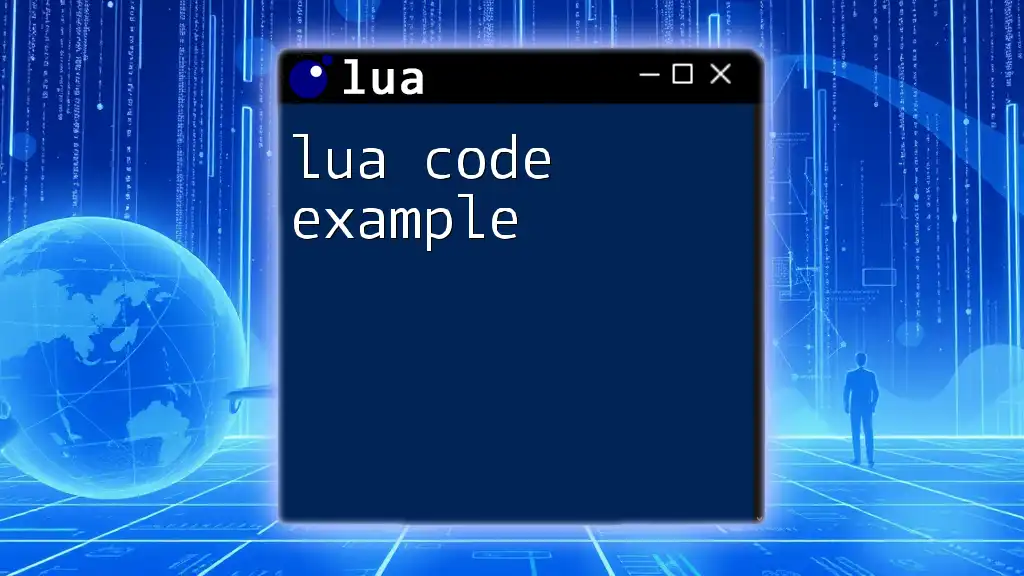
Tools for Working with Lua Bytecode
Luac: The Lua Compiler
The `luac` compiler is the principal tool for compiling Lua scripts into bytecode. It is included with the standard Lua distribution, making it easy to begin working with bytecode.
Debugging Tools
Several tools can aid in debugging Lua bytecode. One notable tool is LuaDebugger. It provides functionality for stepping through bytecode and inspecting variables, which can be invaluable when attempting to resolve issues in your application.
Libraries for Bytecode Manipulation
There are libraries available that allow for manipulation of Lua bytecode, enabling developers to dynamically alter and manage bytecode for more advanced use cases.
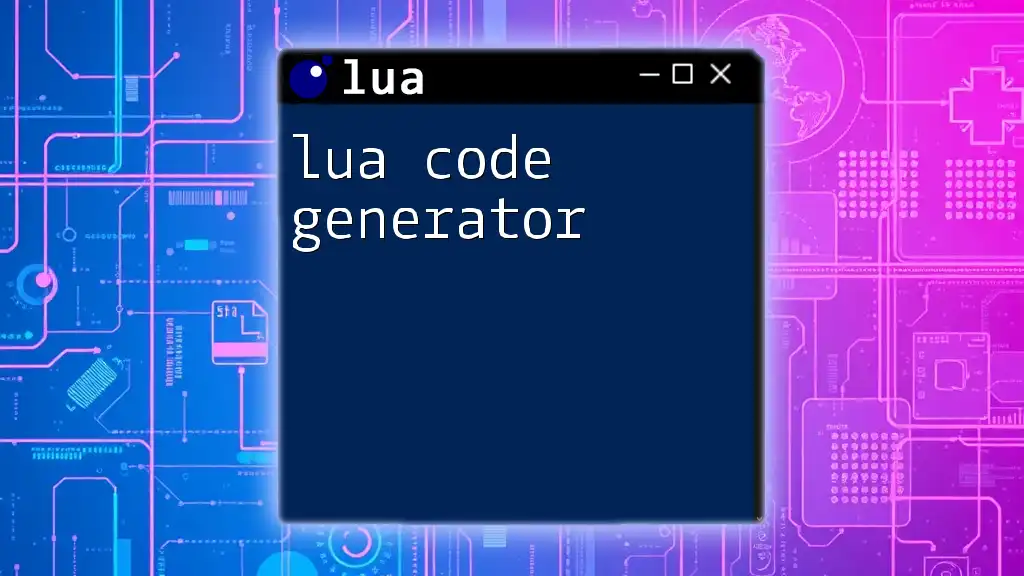
Best Practices for Bytecode in Lua
When to Use Bytecode
Bytecode is beneficial in scenarios where performance is critical, such as game development or any high-frequency data processing tasks. When the execution speed becomes a priority, considering the use of bytecode is advisable.
Maintaining Source Code
Even when utilizing bytecode, it's essential to keep the original Lua scripts accessible. This ensures that maintenance can be performed easily, and feature enhancements can be implemented without the need to revert to the source code.
Upgrading and Compatibility Checks
When using bytecode, always perform compatibility checks whenever you upgrade to a new version of Lua. This will help avoid unexpected runtime errors and ease the transition process.
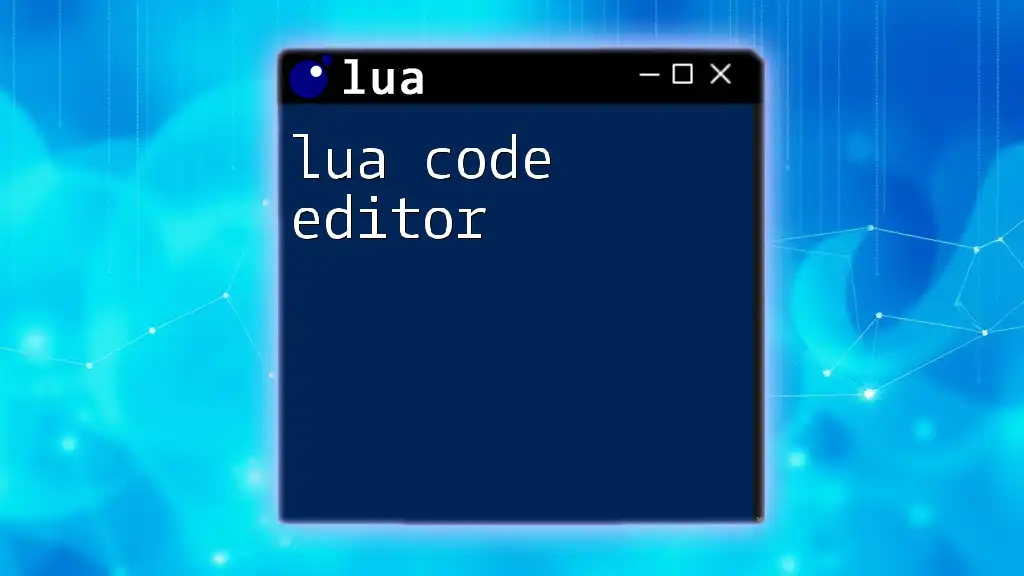
Conclusion
Lua bytecode offers substantial benefits in terms of performance and portability, making it a powerful feature for Lua developers. Understanding the compilation process and the structure of bytecode equips developers with the knowledge needed to make the most of this capability. By carefully weighing the advantages and disadvantages, you can incorporate lua bytecode into your projects effectively.
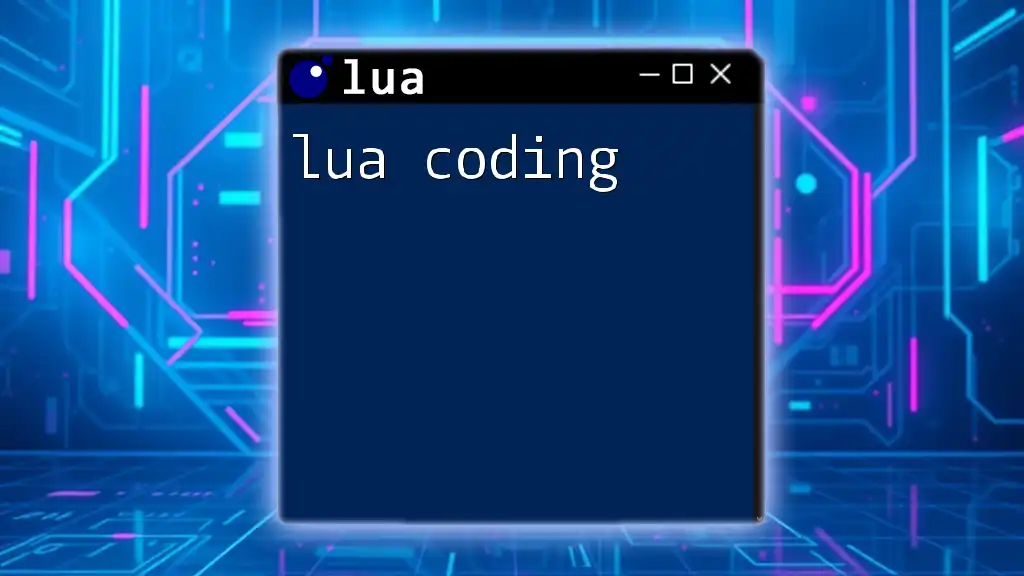
Additional Resources
For those looking to delve deeper into Lua bytecode, it's advisable to explore the official Lua documentation and follow community discussions in online forums. These resources provide extensive knowledge and support, enhancing your understanding and skills in Lua development.

